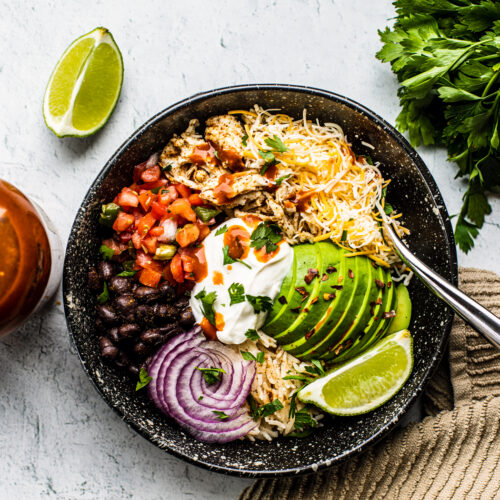Amy Stephens
MS, RDN, CSSD, CEDS
Licensed dietitian
specializing in sports nutrition
and eating disorders
MS, RDN, CSSD, CEDS
Licensed dietitian
specializing in sports nutrition
and eating disorders
Foods consumed after a workout will impact recovery and sports performance.
We asked the Martin coaching team about which foods they eat after a workout and it was no surprise that we received great responses instantly. At the elite level, nutrition is dialed in and the athletes know which foods to grab after a tough workout to promote recovery. We created this post to highlight the importance of refueling and provide some great options from the pros.

During a workout or run, the body breaks down glycogen into usable energy to supply working muscles. As the workout progresses, glycogen stores become depleted and muscle tissue further breaks down. Once exercise stops, the body will absorb nutrients to start the recovery process (Burke). If nutrients are not available, recovery after a workout can take longer. This can be a problem if you are training again the next day or later that same day.
Nutrition can promote faster recovery. Eating the right amount of food immediately after a workout will restore muscle and liver glycogen which is essential for recovery between training sessions or competitive events. Recovery foods are especially important for athletes who work out or compete multiple times per day, as they have limited time for recovery. Carbohydrates and a small amount of protein are necessary to kickstart recovery.
Take advantage of the glycogen window by consuming adequate carbohydrates and protein within the first hour of a workout. During this time, the muscles are primed to absorb nutrients at a faster rate, then slows. Aim for about 100 grams carb ( 1-1.2 g/kg) and 20-30 grams protein post exercise to maximize glycogen resynthesis (Burke). For example, a 150 pound person could eat a bagel with peanut butter and a fruit smoothie.
These numbers are estimates, your body might require more or less food based on the intensity of the workout and how you feel. Recovery will continue over the next few hours but at a slower rate.
Include high glycemic foods such as honey, syrup or carbohydrate-rich beverages to maximize glycogen uptake for athletes who have limited recovery time between workouts (Donaldson).
If solid foods are not tolerated after a workout, take small bites from bland foods like crackers, dry toast or cold beverages such as a sports drink, until your appetite improves.
Johannes Motschmann during the World Athletics Marathon. Budapest, Hungry 2023 Photo: @uyberlin
Some additional recovery food options include:
References
Burke LM, Hawley JA, Wong SH, Jeukendrup AE. Carbohydrates for training and competition. J Sports Sci. 2011;29 Suppl 1:S17-27. doi: 10.1080/02640414.2011.585473. Epub 2011 Jun 9. PMID: 21660838.
Burke LM, Kiens B, Ivy JL. Carbohydrates and fat for training and recovery. J Sports Sci. 2004 Jan;22(1):15-30. doi: 10.1080/0264041031000140527. PMID: 14971430.
Burke L and Deakin V. Clinical Sports Nutrition, Third Edition.
Donaldson CM, Perry TL, Rose MC. Glycemic index and endurance performance. Int J Sport Nutr Exerc Metab. 2010 Apr;20(2):154-65. doi: 10.1123/ijsnem.20.2.154. Erratum in: Int J Sport Nutr Exerc Metab. 2011 Jun;21(3):262-4. PMID: 20479489.
Kerksick CM, Arent S, Schoenfeld BJ, Stout JR, Campbell B, Wilborn CD, Taylor L, Kalman D, Smith-Ryan AE, Kreider RB, Willoughby D, Arciero PJ, VanDusseldorp TA, Ormsbee MJ, Wildman R, Greenwood M, Ziegenfuss TN, Aragon AA, Antonio J. International society of sports nutrition position stand: nutrient timing. J Int Soc Sports Nutr. 2017 Aug 29;14:33. doi: 10.1186/s12970-017-0189-4. PMID: 28919842; PMCID: PMC5596471.
Licensed dietiTian
specializing in sports nutrition and eating disorders
© Amy Stephens Nutrition
SITE BY 744 CREATIVE